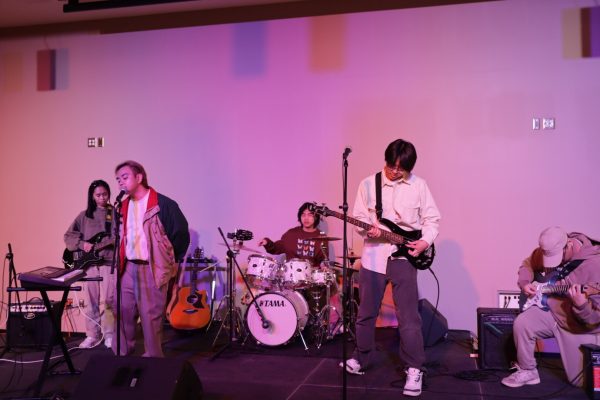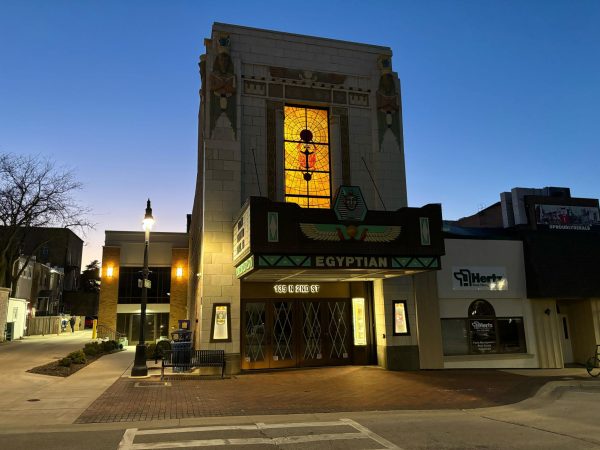The Mars Volta rediscovers its focus
September 19, 2006
Three years ago, The Mars Volta exploded from the ashes of post-hardcore sensations At The Drive-In with “De-Loused in the Comatorium,” a dynamic release that followed through on the experimental potential of At The Drive-In.
But two years later, the epic follow-up concept album “Frances the Mute” took experimentation too far, allowing the band’s talent and vision to be lost in a sea of self-indulgence and weird sound effects.
Now, on their third full-length, guitarist/bandleader Omar Rodriguez-Lopez and frontman Cedric Bixler-Zavala have returned with more focus, more polish and less chirping bird sounds. “Amputechture” is no “De-Loused,” but it’s a refreshing return to form from one of the most promising bands around.
On the epic “Tetragrammaton,” it is clear that the Volta are back. A multi-movement piece showcasing Rodriguez-Lopez’s formidable skills as both a guitarist and an arranger, as well as Bixler-Zavala’s impressive vocal range and bizarre, pseudo-surrealist lyricism. (How else can you describe the lyric “The kiosk in my frontal lobe is shaped like Rosalyn Carter”?)
“Meccamputechture” is another 10-minute-plus epic, whose soaring melodies and jarring transitions flow seamlessly into the sparse “Asilos Magdalena,” a traditional-sounding Spanish tune played as only the Mars Volta could — swirling guitar effects and Bixler-Zavala’s haunting wail.
The album, however, still suffers from a severe case of pretension. With only one song under five minutes long, the band blatantly eschews all things mainstream, depending on reputation alone to move units.
The songs are good, but abstract enough to be impossible to give a casual listen, and there are no massive hooks like “L’Via L’Viaquez” or “Drunkship of Lanterns” from previous efforts. And while the songs are certainly more interesting than nearly anything on “Frances the Mute,” the band hasn’t escaped a stigma that will likely haunt them.
It has been said that The Mars Volta are the most exhilarating band on the planet, but only in short bursts. For two minutes, the duo can shine with unparalleled brilliance, but they invariably spend the next five to 10 minutes noodling around, playing something of great interest to themselves but with virtually no meaning to anyone else.
The “in-between moments” are more tolerable now, but are by no means eliminated.
At least the band is back on the right track.
Volta might never release anything with the laser-like focus of At The Drive-In or with the shocking intensity of “De-Loused.” But they’ve pointed themselves back in the right direction.
And, at the end of the day, they’re still a lot better than Sparta.











